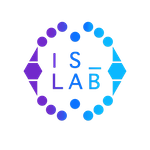G. Meditskos, N. Bassiliades, “Rule-based OWL Reasoning Systems: Implementations, Strengths and Weaknesses”, Handbook of Research on Emerging Rule-Based Languages and Technologies: Open Solutions and Approaches, Adrian Giurca, Dragan Gasevic, Kuldar Taveter (Ed.), IGI Global, ISBN 978-1-60566-402-6, pp. 124-148, 2009.
Author(s): G. Meditskos, Nick Bassiliades
Keywords: ontologies and rules, OWL, reasoning.
Tags:
Abstract: This chapter is focused on the basic principles behind the utilization of rules in order to perform reasoning about the Web Ontology Language (OWL), a Description Logic-based language that is the W3C recommendation for creating and sharing ontologies in the Semantic Web. More precisely, we elaborate on the entailment-based OWL reasoning (EBOR) paradigm, which is based on the utilization of RDF/RDFS and OWL entailment rules that run on a rule engine, applying the formal semantics of the ontology language. To this end, seven EBOR systems are described and compared, analyzing the different approaches. Despite the closed rule environment, which comes in contrast with the open nature of the Semantic Web, and the fact that OWL semantics are partially mapped into rules, the rule-based OWL reasoning paradigm can give great potentials in the Semantic Web, enabling the utilization of rule engines on top of ontology information.
